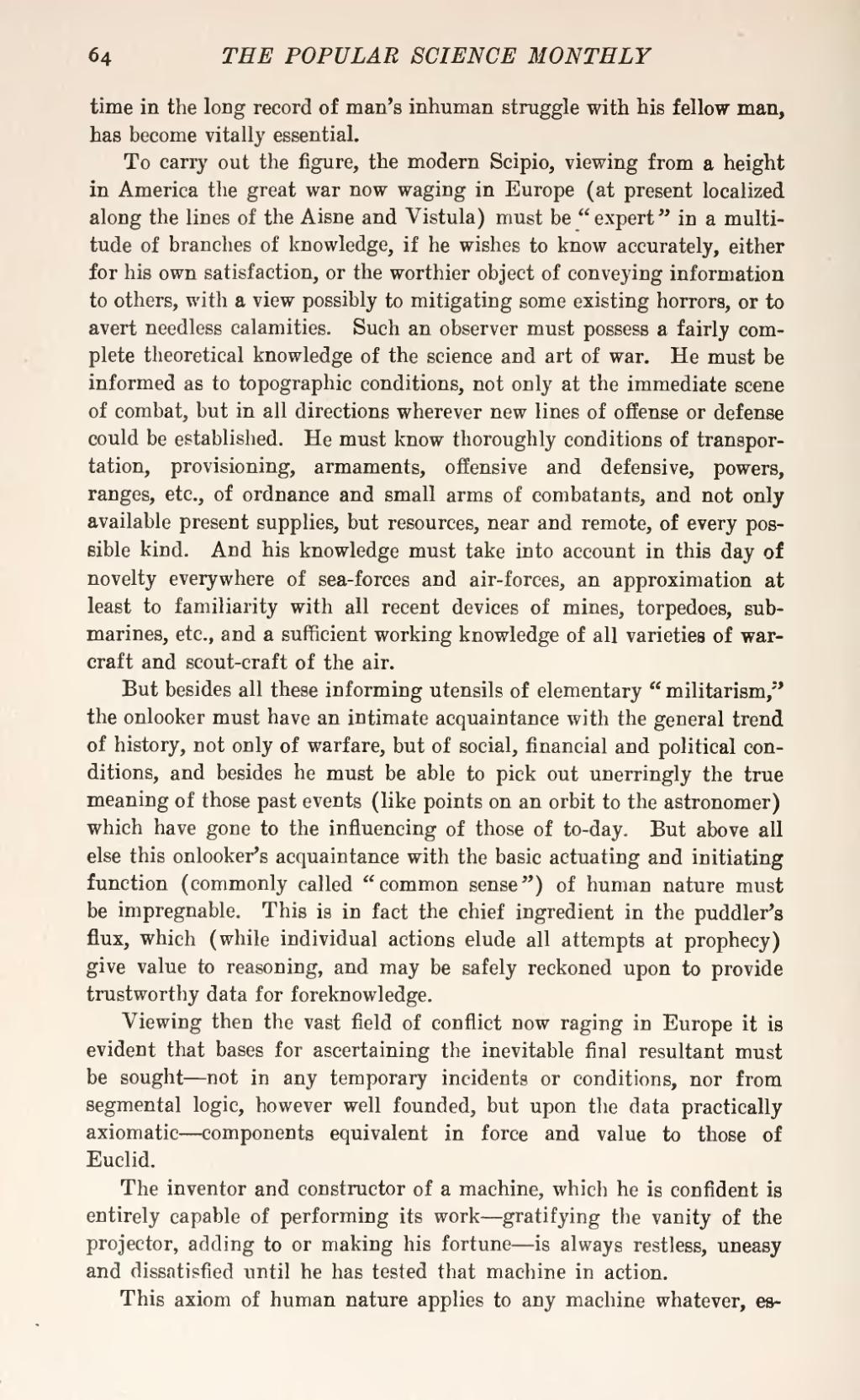time in the long record of man’s inhuman struggle with his fellow man, has become vitally essential.
To carry out the figure, the modern Scipio, viewing from a height in America the great war now waging in Europe (at present localized along the lines of the Aisne and Vistula) must be “expert” in a multitude of branches of knowledge, if he wishes to know accurately, either for his own satisfaction, or the worthier object of conveying information to others, with a view possibly to mitigating some existing horrors, or to avert needless calamities. Such an observer must possess a fairly complete theoretical knowledge of the science and art of war. He must be informed as to topographic conditions, not only at the immediate scene of combat, but in all directions wherever new lines of offense or defense could be established. He must know thoroughly conditions of transportation, provisioning, armaments, offensive and defensive, powers, ranges, etc., of ordnance and small arms of combatants, and not only available present supplies, but resources, near and remote, of every possible kind. And his knowledge must take into account in this day of novelty everywhere of sea-forces and air-forces, an approximation at least to familiarity with all recent devices of mines, torpedoes, submarines, etc., and a sufficient working knowledge of all varieties of war-craft and scout-craft of the air.
But besides all these informing utensils of elementary “militarism,” the onlooker must have an intimate acquaintance with the general trend of history, not only of warfare, but of social, financial and political conditions, and besides he must be able to pick out unerringly the true meaning of those past events (like points on an orbit to the astronomer) which have gone to the influencing of those of to-day. But above all else this onlooker’s acquaintance with the basic actuating and initiating function (commonly called “common sense”) of human nature must be impregnable. This is in fact the chief ingredient in the puddler’s flux, which (while individual actions elude all attempts at prophecy) give value to reasoning, and may be safely reckoned upon to provide trustworthy data for foreknowledge.
Viewing then the vast field of conflict now raging in Europe it is evident that bases for ascertaining the inevitable final resultant must be sought—not in any temporary incidents or conditions, nor from segmental logic, however well founded, but upon the data practically axiomatic—components equivalent in force and value to those of Euclid.
The inventor and constructor of a machine, which he is confident is entirely capable of performing its work—gratifying the vanity of the projector, adding to or making his fortune—is always restless, uneasy and dissatisfied until he has tested that machine in action.
This axiom of human nature applies to any machine whatever, es-
